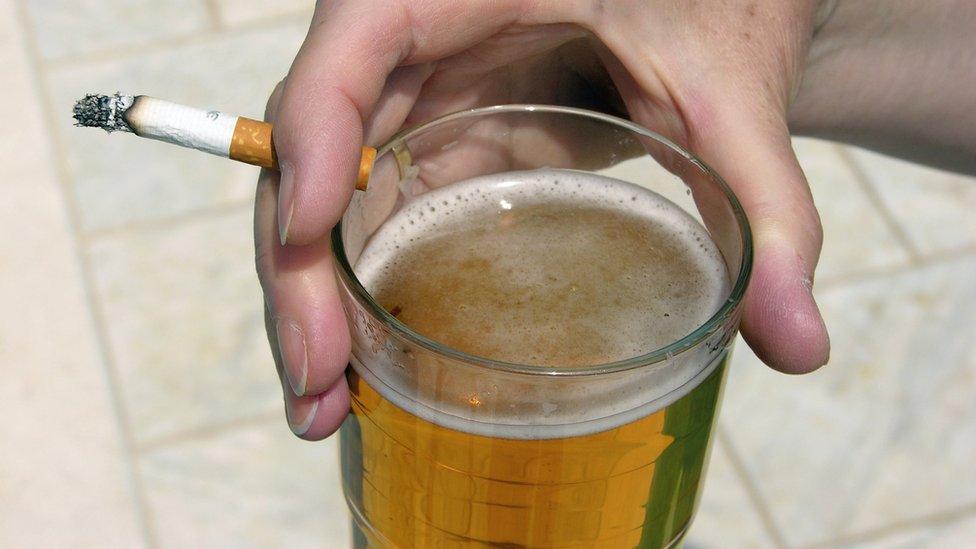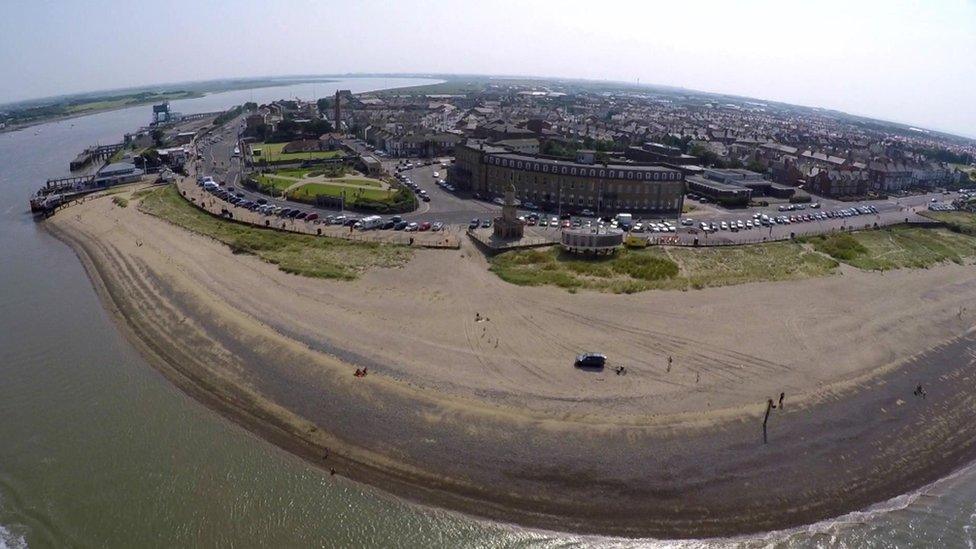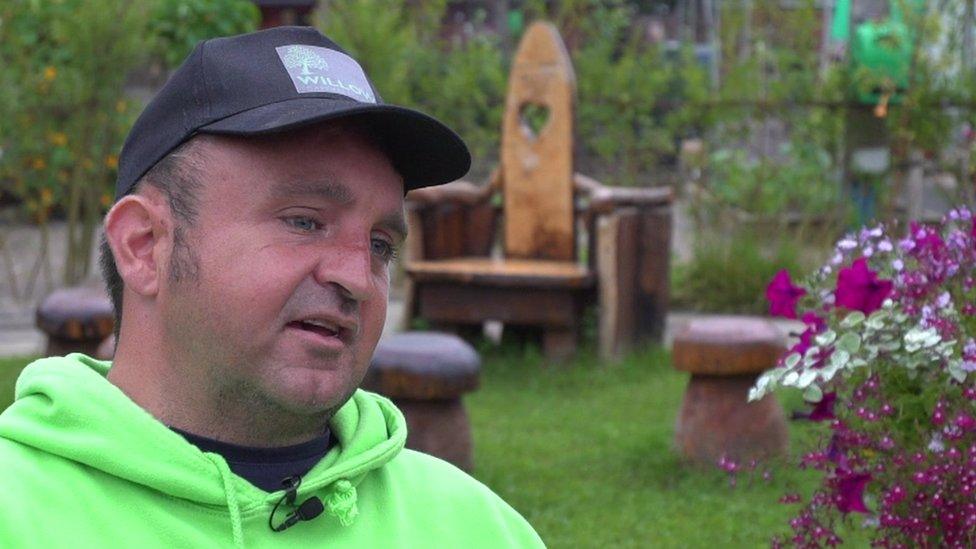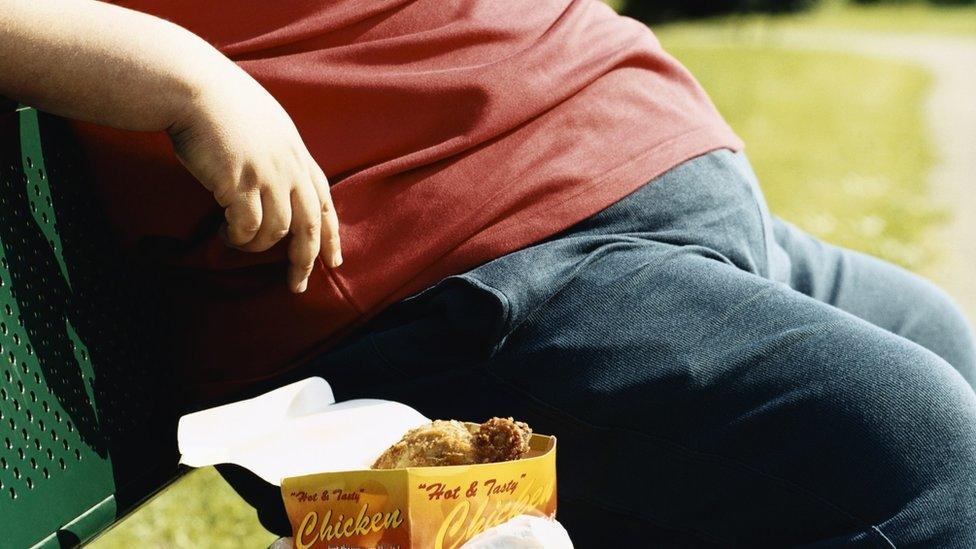Illnesses associated with lifestyle cost the NHS £11bn
- Published

Health problems related to poor diet, drinking and smoking are costing the NHS in England more than £11bn each year, officials say.
Public Health England (PHE) says that unless they are tackled more effectively the NHS will become unaffordable.
It warns conditions such as type 2 diabetes and smoking-related bronchitis are a new and untreatable epidemic.
But the town of Fleetwood, Lancashire, plans to tackle these problems head on.
Around four out of 10, external middle-aged people already have a long-term condition for which there is currently no cure.
Dr Rebecca Wagstaff of PHE says these conditions pose a real threat to the future sustainability of the health service.
"When you look back to Victorian times, we worried about things like diphtheria and polio, and we've actually managed to conquer those now.
"The new threats are things like diabetes and chronic bronchitis. They could overwhelm us."
"They are illnesses for which there is no cure, and they cost the NHS more than £11bn each year. That's a phenomenal amount of money and more than that, it is taking years off people's lives."
Creating a healthy town
The picture is particularly stark in areas of high unemployment and poverty.

Fleetwood in Lancashire
Fleetwood in Lancashire, a once prosperous fishing town, is one such community.
Figures from PHE, external show that on average people die here younger compared to the rest of England.
Life expectancy for a man living in the Pharos ward of Fleetwood is nearly seven years lower compared to more prosperous ward of Tithebarn, just six miles away.
Illnesses such as type 2 diabetes, cancer, lung and heart disease - mostly related to lifestyle choices such as diet, exercise, alcohol and smoking - are claiming lives at an alarming rate.
Local GP Dr Mark Spencer is leading an effort to change that picture.
He has forged a coalition of local people and health workers to break a damaging cycle of sickness.
Dr Spencer says a new approach is needed in towns like Fleetwood, with high levels of unemployment and poverty, because the standard public health messages don't work.
"When I say to folk, 'How about losing a little bit of weight? How about giving up the fags?', they say to me, 'Why should I bother? My life's rubbish.'
"How can we turn the conversation from what's making me ill, to what makes me well?
"And if we focus on what makes me well, actually then what are the benefits of that across the town?"
Healthier Fleetwood
The BBC has been offered the chance to follow this ambitious project over the next year, which will attempt to help people change the behaviour that is damaging their health.
It involves a broad range of different approaches, from educating children in primary schools about food and diet, working with local sports clubs to encourage people to get active, and creating more open green spaces in the town.

Chris Murray values his time at the Willow Garden Project
The Willow Garden Project is the type of scheme that it is hoped could help.
A patch of waste ground has been transformed into a beautiful allotment and garden, full of fruit and vegetables.
It is looked after by people with learning difficulties and brain injuries, including Chris Murray, who suffered a brain injury after a fall.
He says at the Willow Garden Project he finds friendship and support
"I meet some of my friends here and it's really beneficial to me.
"It makes me feel good and I'd be lost without tending to this place on a Tuesday.
"I don't know what I'd do with myself to be honest."
Fleetwood is not alone - many towns and communities across the UK face similar problems.
Over the coming months and years, the challenge will be transforming the health of the people of Fleetwood.
But health experts say it is a challenge the entire country must face up to.
- Published14 July 2016

- Published27 January 2015
- Published8 January 2016

- Published18 July 2012